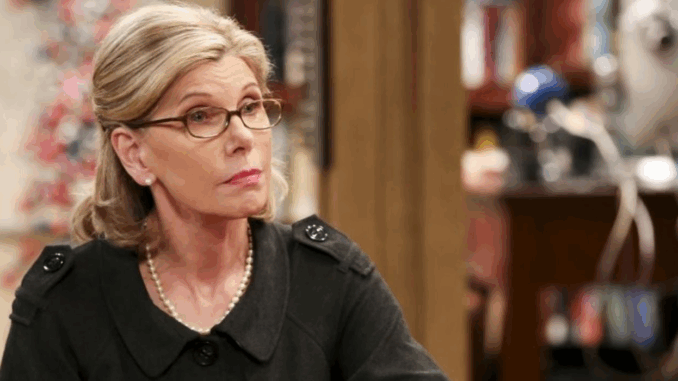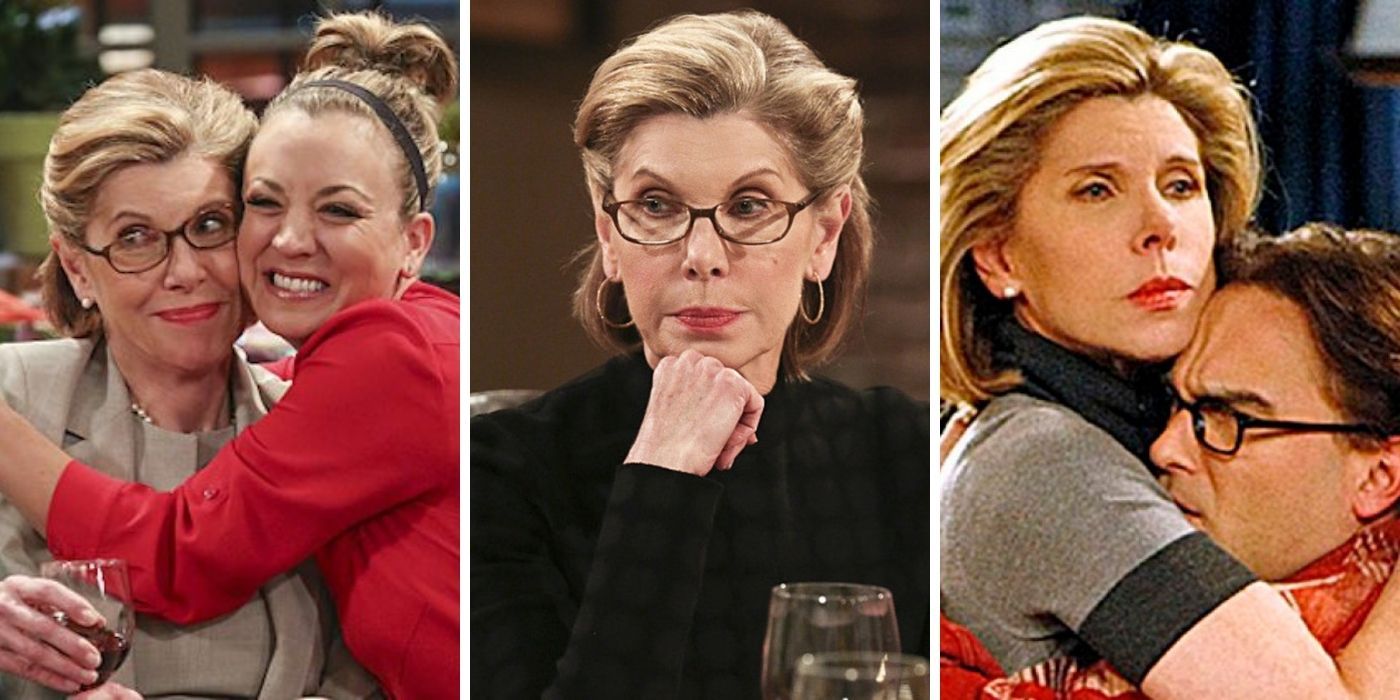
The Big Bang Theory introduced audiences to a wide range of eccentric personalities, but few made a sharper impact in fewer episodes than Dr. Beverly Hofstadter. Played with cold precision by Christine Baranski, Beverly is Leonard’s psychiatrist mother—a woman whose approach to parenting, relationships, and life itself is dictated entirely by logic and analysis. Her appearances were rare but always unforgettable, leaving fans divided over whether to laugh, cringe, or both.
What makes Beverly Hofstadter such a fascinating character isn’t just her clinical demeanor or biting sarcasm. It’s the way she highlights the emotional scars of Leonard, the sweet yet often insecure physicist trying desperately to win her approval. Every time Beverly steps into a scene, she forces the characters—and the viewers—to confront the difference between intelligence and emotional intelligence.
Beverly doesn’t coddle. She dissects. She doesn’t praise. She evaluates. And in a show built around brilliant minds and awkward hearts, she operates like a mirror to the extreme—showing us what happens when intellect is pushed too far at the expense of human connection. Her relationship with Leonard is particularly painful. While other characters had warm, supportive upbringings, Leonard’s memories of childhood often involve clinical studies and cold detachment. It’s no wonder he struggles with confidence and self-worth.
Despite the emotional toll she exacts, Beverly isn’t a villain. She’s simply a product of her worldview—a woman so committed to scientific objectivity that she views emotions as variables to be studied, not experienced. Her dialogue is filled with razor-sharp wit and psychological assessments that often leave the group stunned and silent. Yet underneath her chilling exterior is a woman who, in her own way, is just as complex and vulnerable as the rest.
What made Beverly’s inclusion in the series so valuable is how she challenged the other characters. Her scenes with Penny, for example, were electric. Penny’s unpretentious warmth and Beverly’s icy reserve created an unlikely yet oddly effective chemistry. At times, Penny succeeded where Leonard failed—earning rare moments of admiration from Beverly, which only made Leonard’s frustration more relatable.
Later seasons gave fans small glimpses into Beverly’s own emotional limitations. Whether it was a phone call that hinted at loneliness or her struggle to understand affection, the writers occasionally peeled back the layers. These moments humanized her just enough without softening her too much—maintaining the tension that made her character so captivating.

Beverly Hofstadter also stands out as one of the few recurring characters who could go toe-to-toe with Sheldon. In many ways, she was the older, more socially detached version of him. Their intellectual rapport—filled with mutual admiration and references to obscure theories—was both hilarious and slightly terrifying. Unlike most adults in Sheldon’s orbit, Beverly never tried to change him; she simply understood him.
Christine Baranski’s portrayal gave Beverly the edge she needed to be memorable without becoming cartoonish. Her delivery was always controlled, her expressions minimal, and her timing impeccable. She didn’t just play a character—she embodied an entire philosophy of thought-over-feeling, giving the show a character archetype rarely seen in network sitcoms.
Ultimately, Beverly Hofstadter was never meant to be warm and fuzzy. She was written to disrupt, to provoke, and to expose the emotional vulnerabilities of those around her. And in doing so, she helped The Big Bang Theory explore deeper questions about parenting, love, and what it truly means to connect.
While she may never win “Mother of the Year,” Beverly remains one of the series’ most intellectually potent and dramatically effective characters. Her legacy is a reminder that not all growth comes from hugs—sometimes, it comes from harsh truths, brutal honesty, and the unyielding pursuit of understanding.